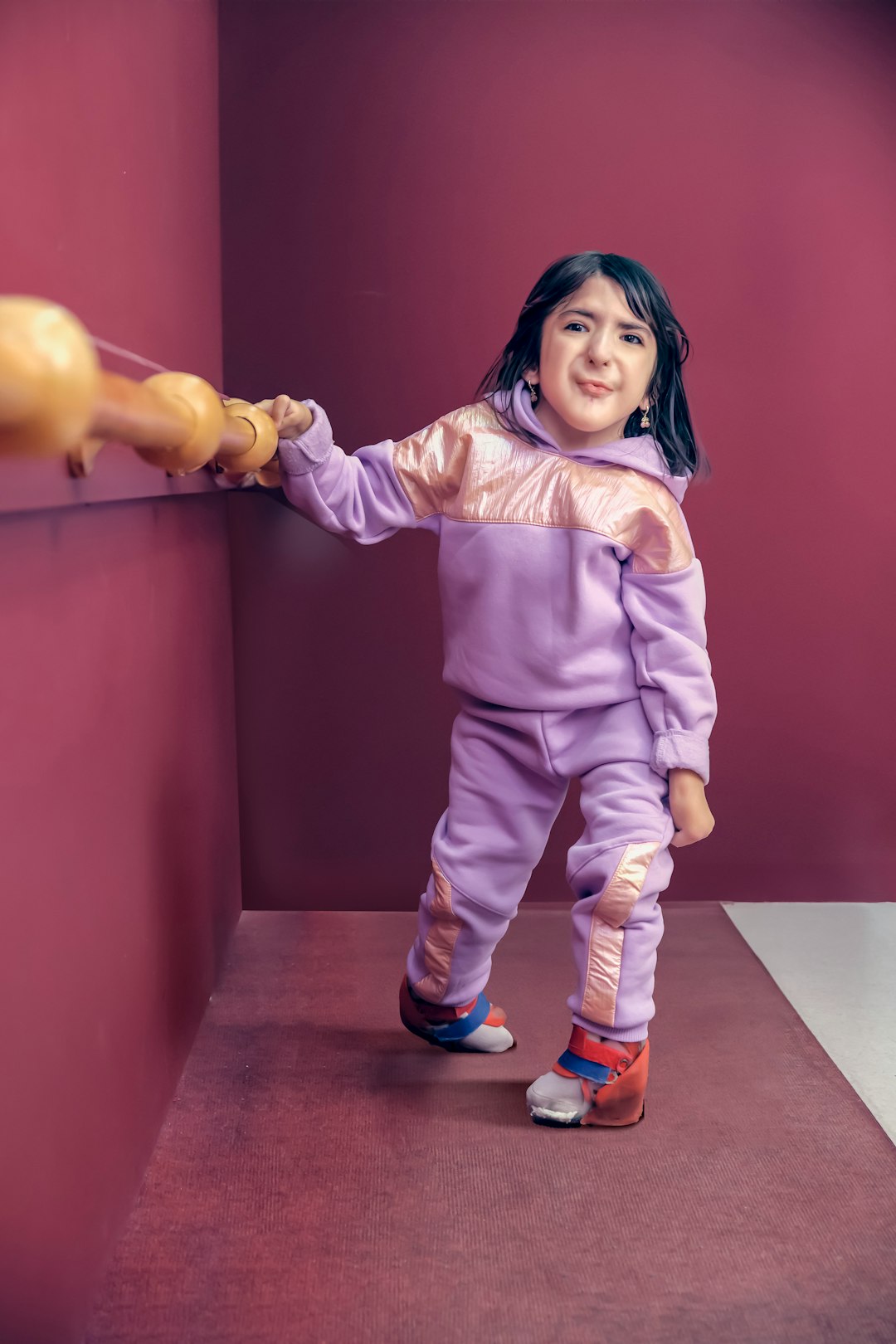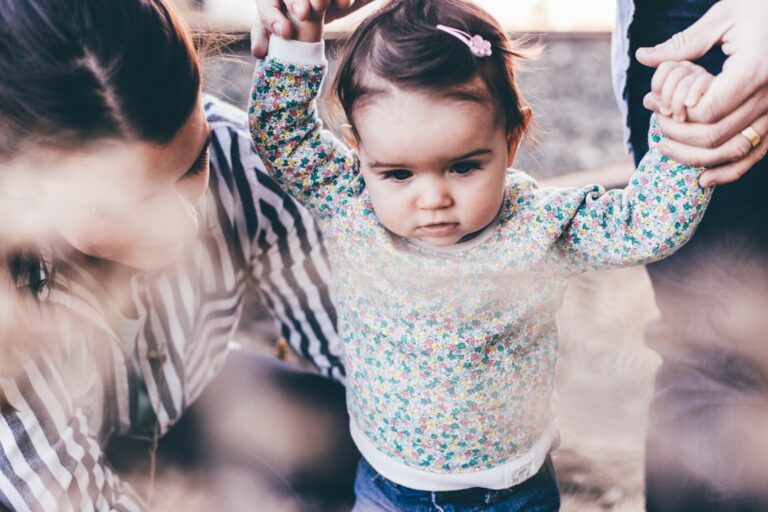Every parent wants their child to grow into a confident, healthy, and happy individual. But with today’s constant stream of media images and peer influences, fostering a positive body image in children is more challenging than ever. Parents are searching for real answers: How can I help my child build a healthy relationship with their body? In this comprehensive guide, we’ll explain what parents need to know about body image, why it matters, and practical steps you can take to nurture self-esteem and resilience in your child.
What Is Body Image and Why Does It Matter for Kids?
Body image is how someone thinks and feels about their own body and appearance. For children and teens, developing a healthy body image is crucial for self-esteem, mental health, and even physical well-being. Poor body image at any age can lead to anxiety, depression, unhealthy habits, and disordered eating.
Children start forming beliefs about their bodies astonishingly young. Research shows kids as young as five may express dissatisfaction with their appearance. Social media, advertising, and conversations at home all shape their attitudes. Helping your child develop a positive perspective isn’t just about preventing problems—it’s about empowering them to embrace their uniqueness and grow up confident in who they are.
Signs Your Child May Be Struggling With Body Image
Recognizing early signs of body image struggles means you can offer support before issues escalate. Here are some indicators to watch for:
- Expressing frequent negative comments about their looks (“I’m too fat” or “My nose is weird”)
- Comparing their body to siblings, friends, or online images
- Obsession with weight, size, or specific body parts
- Reluctance to participate in activities (like swimming) that show their body
- Changes in eating habits—avoiding food, restricting intake, or sneaking food
- Mood shifts, irritability, or withdrawal from social situations
If you notice these signs, approach your child with compassion and curiosity. Open communication is the foundation for support.
Understanding What Influences Kids’ Body Image
Children develop their self-image based on multiple influences. Being aware of these factors helps parents take a proactive role.
- Family Attitudes: Kids absorb how parents talk about their own bodies and appearance expectations. Critical self-talk or dieting in front of children can send powerful messages.
- Peer Pressure: Friends aren’t just a social force—they can also fuel comparisons and teasing based on looks.
- Media and Social Media: Children are exposed to idealized, edited images of beauty. Social media in particular has a direct link to body dissatisfaction in young people.
- Cultural and Societal Norms: Society sets unrealistic standards that may not reflect diverse body types, abilities, or backgrounds.
- Health & Physical Changes: Puberty, medical conditions, or body changes can be confusing or distressing, especially if a child feels different from peers.
Practical Strategies Parents Can Use to Build Healthy Body Image
You have significant influence over how your child learns about and relates to their body. Here are research-backed steps parents can take:
1. Model Positive Self-Talk and Body Acceptance
- Avoid criticizing your own body or speaking negatively about weight in front of your child.
- Use language that focuses on what bodies can do, not just how they look (“My legs help me dance!” or “Your arms are so strong!”).
- Celebrate diverse appearances—your own and others’.
2. Make Your Home a Safe, Body-Positive Environment
- Ban “fat talk” or negative comments about appearance—about anyone.
- Display books, movies, and toys that reflect a variety of body types, abilities, and backgrounds.
- Encourage openness. Make it safe for your child to talk about their worries and questions.
3. Teach Your Child Critical Media Literacy
- Help your child recognize that media images are often edited or filtered. Discuss how online influencers curate what they show.
- Watch shows and browse social media together. Point out unrealistic portrayals and discuss how they make your child feel.
- Encourage following positive, diverse accounts on social media and unfollowing ones that cause distress.
4. Focus on Health, Not Appearance
- Talk about food and activity as ways to nourish and energize the body—rather than for weight control.
- Avoid using weight as a punishment or source of shame. Instead, celebrate achievements like running fast, climbing, or trying new foods.
- Support a balanced approach: Allow treats and avoid restrictive diets for kids unless medically necessary and guided by professionals.
5. Diversify Their Role Models
- Introduce your child to athletes, public figures, and fictional characters who represent many sizes, abilities, and backgrounds.
- Read stories and watch programs together that challenge stereotypes and promote inclusion.
Proactive Habits to Encourage at Every Age
A child’s understanding of body image changes as they grow. Here’s how to support them at each stage:
Preschool and Early Elementary (Ages 3-7)
- Use body-positive language that centers on what bodies can do (“Your hands built a tower!”, “Look how fast your legs can run!”).
- Answer questions matter-of-factly about size, shape, or skin differences, emphasizing that all bodies are good bodies.
- Encourage dress-up and creative movement to promote appreciation for all body parts.
Later Elementary (Ages 8-11)
- Anticipate questions about puberty and reassure your child that changes are normal and everyone develops at their own pace.
- Challenge media stereotypes together and introduce your child to a range of healthy role models.
- Monitor peer influences—help your child navigate teasing or comparison.
Preteens and Teens (Ages 12+)
- Discuss social media and peer pressure openly. Teach your teen to curate their feed and unfollow triggering accounts.
- Share stories (including your own, if appropriate) of overcoming body image struggles.
- Empower your teen to set boundaries with friends or activities that damage their self-esteem.
Encouraging Healthy Conversations About Appearance
Talking about bodies with your child isn’t always easy, but it makes a real difference. Here’s how to keep discussions constructive and supportive:
- Listen First: If your child criticizes their appearance or compares themselves to others, let them share without jumping in to fix. Ask questions: “What makes you feel that way?” or “Have you noticed that in others, too?”
- Normalize All Feelings: It’s okay to feel insecure sometimes—remind your child that everyone has moments of doubt, but those feelings don’t define them.
- Celebrating Uniqueness: Point out what makes your child (and others) special beyond appearance: creativity, kindness, humor, effort.
- Challenge Stereotypes Together: When you hear negative comments (even from relatives or media), discuss why these ideas are unfair or unrealistic.
- Practice Gratitude Bodies: Each night, share something you appreciate about your body (“Today my arms helped me hug” or “My legs let me play soccer”).
Addressing Specific Questions Kids Ask About Bodies
Children’s questions about body image can catch parents off guard. Here are parent-tested responses to common concerns:
- “Why is my body different than theirs?”
Everyone’s body is unique. Just like we all have different personalities, we also have different heights, shapes, and colors. That’s what makes the world interesting! - “Why am I not as thin/tall/strong as my friends?”
Bodies come in all shapes and sizes because of a mix of family traits, health, and even how much we sleep or move. What’s most important is how we treat our bodies, not just how they look. - “Am I fat?” or “Is being fat bad?”
Fat isn’t a bad word—it’s a normal part of bodies. What matters is being strong, active, and healthy, not a number on the scale or how we compare to others.
How to Handle Teasing or Bullying About Appearance
Body-based teasing, whether at school or online, is hurtful and can damage self-esteem for years. Here’s how to support your child if it happens:
- Listen and Believe Them: Avoid dismissing their feelings or saying “just ignore it.” Take their experience seriously.
- Reassure Them: Explain that teasing says more about the teaser than the target. Offer unconditional support and love.
- Practice Responses Together: Help your child practice calm, assertive responses (“Please don’t talk about my body,” or simply walking away).
- Involve Trusted Adults: If teasing is persistent, collaborate with teachers or counselors. Schools are required to address bullying, including body shaming.
- Monitor Online Activity: Discuss cyberbullying and guide your child through safe social media use.
What If You’re Worried About Your Child’s Weight or Eating?
For some parents, concerns about weight or nutrition feel especially fraught. The key is to approach these topics with empathy:
- Focus on health-related goals (more energy, fun activities, healthy habits) rather than appearance.
- Consult your pediatrician before making any changes to diet or suggesting weight loss. Avoid discussing weight in front of your child unless medically indicated and handled sensitively by health professionals.
- Include the whole family in healthy lifestyle changes—don’t single out one child.
If you notice sudden changes in eating habits, secretive behavior around food, or rapid weight change, seek professional support. Early intervention can prevent long-term issues.
Building Resilience Against Peer and Media Pressure
You can’t control every influence, but you can help your child develop the inner confidence to resist comparison and criticism. Foster these protective skills:
- Self-Compassion: Teach your child to treat themselves like a friend. When setbacks happen, ask, “What would you say to a friend who felt this way?”
- Problem-Solving: Let kids make choices and solve problems, even if they sometimes fail. Confidence grows through experience.
- Assertiveness: Practice respectful ways to set boundaries or speak up.
- Community: Encourage friendships, activities, and groups that value diversity and inclusion—not just appearances.
When to Seek Professional Help
If your child’s preoccupation with weight, shape, or appearance is affecting their well-being, self-esteem, or daily life, reach out for help. Signs may include:
- Talk of self-harm or withdrawal from friends and normal activities
- Severe anxiety about eating, dressing, or attending school
- Dramatic changes in weight, eating, or exercise patterns
Pediatricians, child psychologists, and therapists specializing in body image and eating issues can provide support and strategies. Early intervention is the key to preventing serious problems.
Helpful Resources for Parents and Kids
- Books: “I Like Myself!” by Karen Beaumont, “All Bodies Are Good Bodies” by Charlotte Barkla
- Websites: National Eating Disorders Association (nationaleatingdisorders.org), Common Sense Media for media literacy
- Support: Local youth groups and body-positive social media accounts (for older children)
Conclusion: Empowering Kids to Love Their Bodies
Building a healthy body image in kids isn’t about achieving perfection—it’s about helping them appreciate their bodies, embrace diversity, and feel confident in themselves. As a parent, your words, attitudes, and actions matter more than any outside influence. By modeling body acceptance, encouraging open conversations, and focusing on health over appearance, you lay the foundation for a resilient, empowered child. Remember: every child deserves to feel comfortable in their own skin—and you have the power to help them get there.




